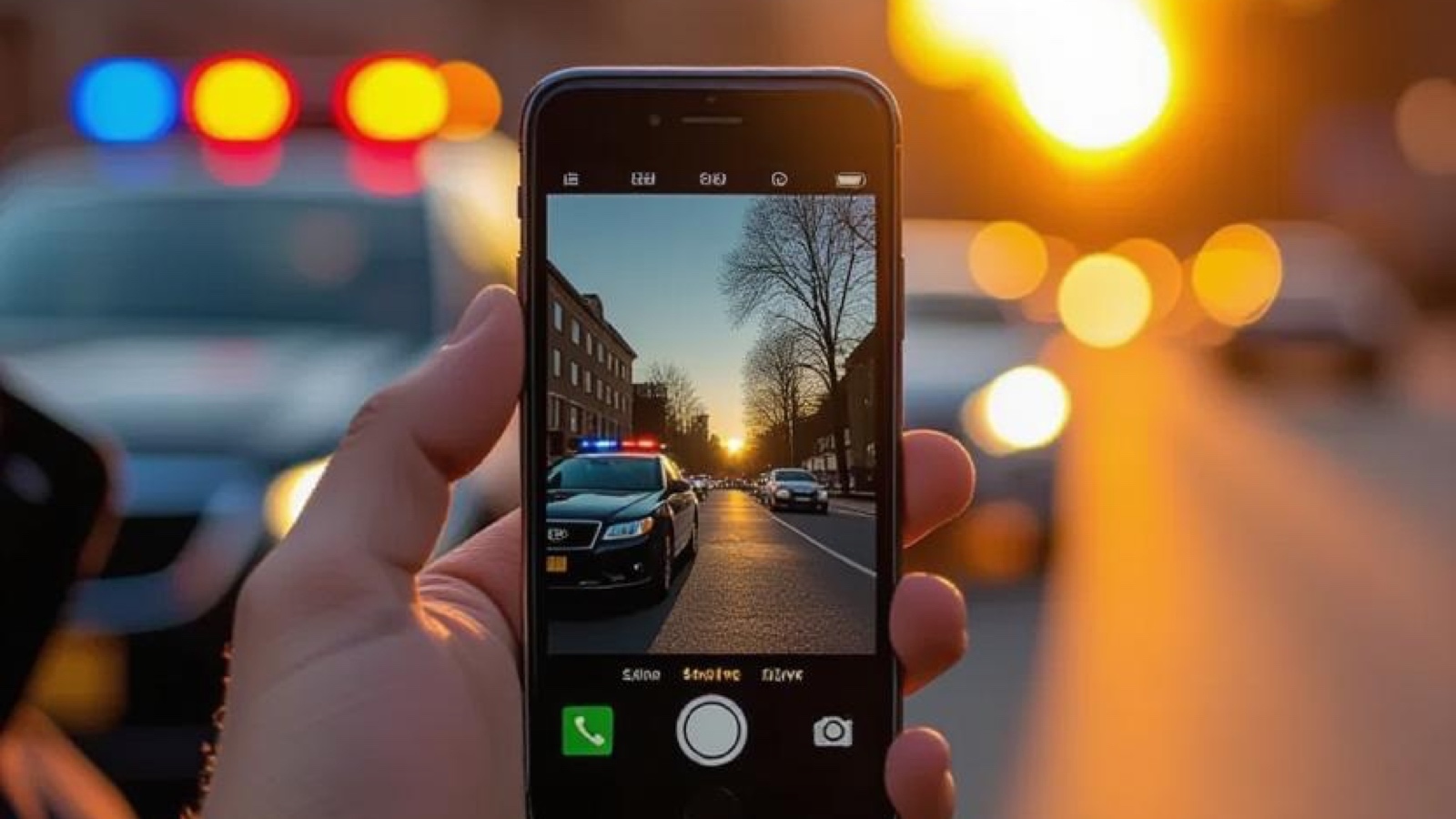Recording Police Encounters: Rights, Limits, Practical Tips
Recording can create a clear record, but you must not interfere. Here’s a calm, practical approach.

Know your rights in plain English
- You may record from a reasonable distance without interfering.
- Keep hands visible; don’t block movement or step into active scenes.
- Speak calmly. If asked what you’re doing: “I’m recording and I’ll stay back.”
How to record safely
- Hold the phone horizontally for a wider view; lock focus/exposure.
- Say the date, time, and location out loud at the start.
- Avoid running commentary; quiet narration is fine, but don’t escalate.
- If lights are low, step back rather than moving closer into danger.
If the encounter becomes a detention or arrest: use the rights script and stop discussing facts — “I choose to remain silent. I want a lawyer. I don’t consent to any searches.”
If asked to stop recording
- Calmly say, “I’m not interfering. I’ll stay back.”
- If ordered to move, comply with the repositioning while continuing to record.
- Don’t argue roadside law; save disputes for later with counsel.
After the encounter
- Save the original file; make a backup. Keep a short timeline (who/when/where).
- Avoid posting publicly until you’ve spoken with a lawyer.
- If requested to share, keep a copy for yourself and use a method your lawyer recommends.